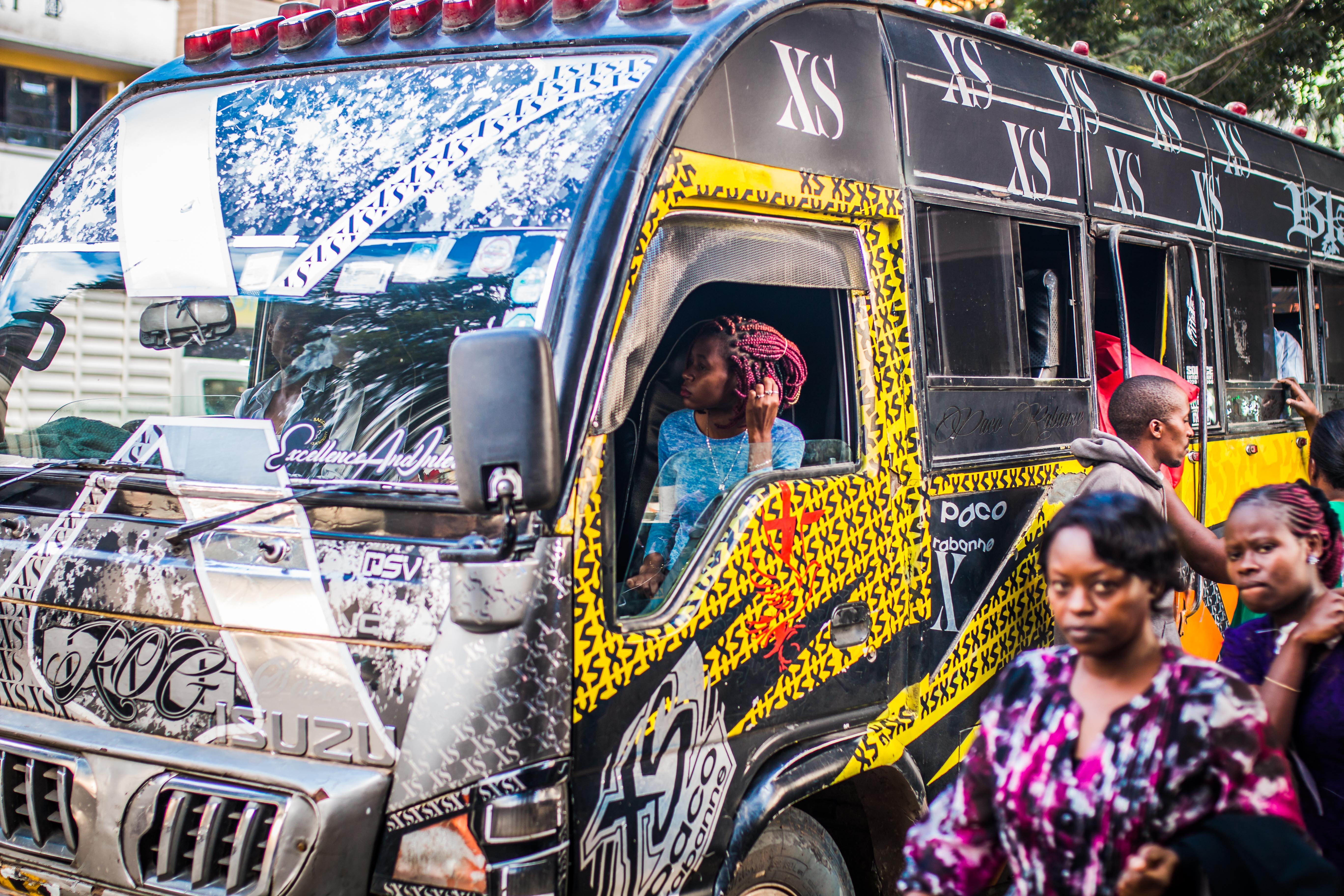
Safe Travel in Urban Africa: Matatus and Gender Toolkits
March 7, 2019 — The Big Picture
Over the years, there have been rampant cases of violence against women and girls (VAWG) on public transport in Africa and across developing regions. On November 17, 2014, the world’s eyes were set on Kenya as the #MyDressMyChoice campaign grew in popularity. Thousands of people took to the streets to protest sexual violence against women in public transport sectors after a spate of stripping assaults were filmed and posted online. This protest sparked a movement to challenge gender norms and systems that allow for violence of this nature to occur, the latter of which fundamentally limit women’s freedom of movement and access to public space.
There exists a common transportation method used across urban cities. The public minibus transport service of Kenya – also known as the Matatus – provide an affordable transportation option to many people who would otherwise remain immobile. The Matatu industry employs hundreds of thousands of people and has developed its own unique culture. Kenyan minibus services are organized into informal saving and credit cooperatives organizations (SACCOs). These public minibus transport services are frequently used by middle and lower-income earners – the majority of who are women – and are notorious for frequent harassment, recklessness, and violence.
Ingenuity met practicality, and a proposed goal to reach a solution was introduced. An accessible toolkit was created to provide practical and safe systems of support for women, all the while preserving what works best about this transportation system. The Gender Sensitive Mini-Bus Services and Transport Infrastructure for African Cities Toolkit is designed to provide minimum standard guidelines and practical tools to create a safer and more accessible public transportation structure for women in African cities.
The toolkit gives vital knowledge for improving existing management policies and practices. It is in part a synthesis of primary and secondary information taken from two case studies from Nairobi, Kenya, and a literature review. The aim is to identify best practices on gender and urban transport applied in cities around the world, with a particular focus on developing cities.
These case studies are conducted by Flone Initiative and in collaboration with UN-Habitat, expert in Gender and Urban Planning Prof. Inés Sánchez Madariag, and affiliated with the University of Madrid and a member of UN-Habitat’s Advisory Group on Gender Issues (AGGI). They looked to gather information from both commuters and transport industry operators (drivers, conductors, and managers) through the execution of a Mobility of Care Study and a Gender Equity Assessment using three selected public minibus transport service providers.
These studies were conducted from August to October 2018. The findings from these studies coupled with best practices have informed the development of this toolkit.
The toolkit provides public minibus transport providers with:
- customer feedback tools and sample customer service charter. The report recommends that these tools should provide commuters with clear reporting mechanisms.
- how to achieve environmental sustainability.
- recommendations on how to develop and implement zero-tolerance sexual harassment policies that address concerns for both workers and commuters.
- recommendations of minibus modifications that support the specific needs of commuters traveling with children, carrying large packages and living with both visible and invisible disabilities.
- how to integrate organizational family-friendly human resource policies such as maternity and paternity leave.
Additionally, the toolkit recommends ways in which policymakers can use these recommendations to develop gender-sensitive legislation. Such legislation can create safer and more accessible public transportation systems for all road users. The toolkit can also be used to provide new ideas for civil society actors to support gender security and mobility initiatives.
This is the first version of a toolkit which will guide a multi-year project executed by Flone Initiative. The project itself will seek to support transport organizations in adopting recommendations made herein. This toolkit will be greatly used and adapted as organizations receive added user feedback, and learn from and improving on its impact.